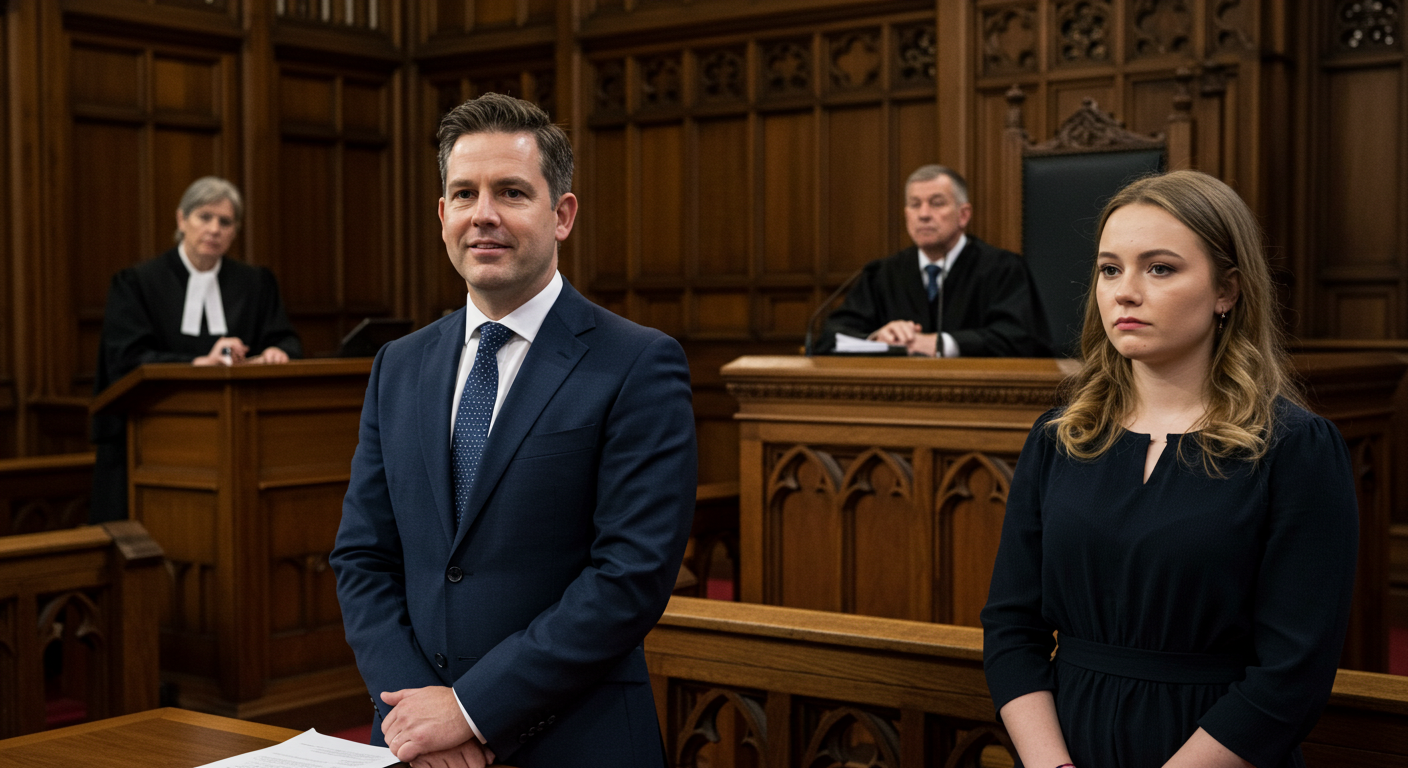Innocent Until Proven Guilty: A Fundamental Principle in the Justice System

Innocent Until Proven Guilty: A Fundamental Principle in the Justice System
The principle of “innocent until proven guilty” is a fundamental right in the English legal system, ensuring that no one is convicted of a crime without the prosecution proving their guilt beyond a reasonable doubt. This cornerstone of justice protects individuals from wrongful punishment and maintains the integrity of the legal process.
What Does “Innocent Until Proven Guilty” Mean in England?

In England, the presumption of innocence is a legal safeguard enshrined in the Human Rights Act 1998, which incorporates the European Convention on Human Rights into domestic law. Article 6 of the Convention guarantees the right to a fair trial, including the presumption of innocence. This principle ensures that:
- The burden of proof lies with the prosecution: It is up to the state to prove the defendant’s guilt, not for the defendant to prove their innocence.
- The accused is not required to testify: Defendants have the right to remain silent and are not obligated to present any evidence unless they choose to do so.
- Guilt must be proven beyond a reasonable doubt: If there is any reasonable doubt about the defendant’s guilt, they must be acquitted.
This principle protects individuals from being wrongfully convicted on weak or insufficient evidence, reinforcing the idea that it is better for a guilty person to go free than for an innocent person to be wrongly punished.
Wrongful Convictions in England
Despite the safeguards provided by the presumption of innocence, wrongful convictions do occur. In England, the Victims’ Right to Review (VRR) scheme allows individuals to challenge decisions made by the Crown Prosecution Service (CPS), providing an essential mechanism to prevent miscarriages of justice. During the 12 months to the end of Q4 2023/24, 1,681 requests were made under this scheme. Of these, 320 original decisions (about 19%) were found to be incorrect, demonstrating the importance of continual oversight and case reviews in upholding justice.
While England lacks comprehensive data on wrongful convictions comparable to some other countries, the possibility remains a serious concern. Regular case reviews and the opportunity to appeal decisions help mitigate the risk of individuals being unjustly convicted, safeguarding the presumption of innocence in practice.
Conviction Rates in England
The presumption of innocence plays a critical role in determining whether or not individuals are convicted. In recent years, England has seen fluctuations in conviction rates, which offer insight into the balance between prosecuting offenders and protecting the rights of the accused.
- In Q4 2023/24, the overall conviction rate in England stood at 85.9%, up from 85.0% in Q3 2023/24.
- Over the entire 2023/24 fiscal year, the conviction rate was 85.2%, an increase from 84.1% in 2022/23.
These figures indicate that a high proportion of cases that go to trial result in convictions, but they also underscore the importance of the presumption of innocence in cases where the prosecution cannot prove guilt beyond a reasonable doubt.
Case Reviews and Safeguards Against Wrongful Convictions

To ensure that convictions are based on solid evidence and that innocent individuals are not wrongfully convicted, the Crown Prosecution Service (CPS) regularly conducts case reviews. In Q4 2023/24, 98.1% of post-trial cases that were dip-sampled were deemed to have made correct decisions to charge and proceed to trial. This high percentage reflects the careful consideration given to each case before prosecution.
However, the Victims’ Right to Review scheme, which led to 320 overturned decisions in 2023/24, highlights that errors can and do occur, and ongoing scrutiny remains crucial to preventing wrongful convictions.
Timeliness of Proceedings in England
The efficiency and timeliness of the criminal justice process are vital to upholding the principle of “innocent until proven guilty.” Prolonged delays can cause undue hardship for defendants, particularly those held on remand awaiting trial. Recent efforts to improve the speed of trials in England have yielded some positive results:
- In Q2 2023, the median time from offence to completion in magistrates’ courts decreased by 2% compared to the previous quarter.
- In Crown Courts, the median time from offence to completion dropped by 3% during the same period.
While these improvements are welcome, there is still a backlog of cases in the system. For instance, the number of listed trials in the Crown Court decreased from 7,560 in the previous quarter to 6,711 in Q2 2023, indicating that efforts are being made to reduce delays, but challenges remain.
The Role of Evidence in Upholding the Presumption of Innocence

In any criminal case in England, the prosecution must present sufficient evidence to prove the defendant’s guilt. If the evidence does not meet the required standard, the defendant must be acquitted. Types of evidence that can play a crucial role in securing convictions include:
- Forensic evidence: DNA, fingerprints, or other physical traces that link the accused to the crime.
- Witness testimony: Accounts from victims, eyewitnesses, or experts that help to establish the facts of the case.
- Digital evidence: CCTV footage, phone records, or other electronic data that can corroborate the prosecution’s case.
The presumption of innocence ensures that if this evidence is insufficient or unreliable, the accused cannot be convicted. It is an essential mechanism for preventing wrongful convictions and protecting individual rights.
Trial Efficiency and Convictions
The principle of “innocent until proven guilty” is crucial in ensuring that only those who are proven guilty beyond a reasonable doubt are convicted. While conviction rates remain high, not all cases result in convictions. The presumption of innocence ensures that defendants receive a fair trial where the prosecution must meet the burden of proof.
For example, the overall conviction rate in Q4 2023/24 was 85.9%, which highlights the system’s ability to prosecute cases effectively. However, the remaining 14.1% of cases did not result in a conviction, demonstrating the legal system’s adherence to the principle that a defendant should not be convicted unless their guilt is proven beyond a reasonable doubt.
The Impact of Wrongful Convictions in England
While wrongful convictions are rare, their consequences are severe. They can result in the loss of liberty, reputation, and future opportunities for individuals who are wrongfully imprisoned. In England, the criminal justice system has mechanisms like the Court of Appeal and the Criminal Cases Review Commission (CCRC) to ensure that miscarriages of justice are addressed. The presumption of innocence, coupled with these review processes, acts as a safeguard against such devastating errors.
Conclusion

The principle of “innocent until proven guilty” is at the heart of the English criminal justice system. It places the burden of proof on the prosecution and ensures that individuals are not convicted unless their guilt is proven beyond a reasonable doubt. Recent statistics on conviction rates, case reviews, and the timeliness of proceedings in England demonstrate the importance of this principle in protecting the rights of the accused and maintaining justice.
Despite the high conviction rates in England, the criminal justice system is designed to uphold the presumption of innocence, ensuring that wrongful convictions are minimised through case reviews, appeal mechanisms, and rigorous legal safeguards. This fundamental right continues to play a vital role in maintaining fairness and balance in the English legal process.
Notice: Informational Content Disclaimer
The content provided on this website, including articles, blog posts, and other informational materials, is intended for general informational purposes only. It is not intended as, and should not be considered, legal advice.
Visitors to this website should be aware that the information presented here is not a substitute for seeking legal advice from a qualified solicitor or legal professional. Each individual's legal situation is unique, and the information provided may not be applicable to specific circumstances.
If you require legal advice or have specific legal questions, we encourage you to contact us directly. Our experienced team of solicitors is here to assist you with your legal needs and provide tailored advice to address your concerns.
Please be advised that any communication through this website, including the use of contact forms or email, does not create a solicitor-client relationship. Confidential or time-sensitive information should not be sent through this website. To establish a solicitor-client relationship and discuss your legal matters in detail, please contact us for a consultation.
We strive to provide accurate and up-to-date information, but we make no representations or warranties regarding the accuracy, completeness, or suitability of the information contained on this website. We shall not be liable for any reliance placed on the information provided herein.
Thank you for visiting our website. We look forward to the opportunity to assist you with your legal needs.




